How Much Water Do I Really Need? (A Guide for Proper Hydration)

So you want to know, “How much water should I drink a day?”
The short answer: drink enough to not be thirsty (maybe slightly more).
The long answer: read this guide for that!
Proper water consumption is a must for health and fitness, which is why we discuss it with every single member of our 1-on-1 Online Coaching Program. We even assign them fun missions to make sure they’re adequately hydrated.
Here’s what we’ll cover to answer the question, “How much water do you really need?”
- Should you drink 8 glasses of water a day? (The controversy)
- How much water a day do you really need? (Follow your thirst)
- How to drink more water (Tips from a NF Coach)
- Can you lose fat by drinking lots of water? (Weight loss and water intake)
- Can I be overhydrated? (Too much of a good thing)
- Are sports drinks more hydrating than water? (Water, sugar, salt, and you)
- Does coffee dehydrate you? (Caffeine as a diuretic)
- A note on bottled water (Invest in a water filter)
- Staying properly hydrated (Next steps)
Pour yourself a glass of water (duh), then let’s do this thing!
Should You Drink 8 Glasses of Water a Day? (The Controversy)

First and foremost, yes you need water.
Boom. Article done. I’m going on break.
I kid, I kid.
Water is good for you; a significant portion of your body is composed of water, and when you lose fluids through sweat, exertion, bodily functions, etc, consuming water can help you replenish fluids.
HOWEVER…
The whole “8 glasses of water a day” thing is not law.
In fact, there’s no real proof of this being a proper amount at all.[1]
As we’ve told you before (the perfect workout, the perfect diet), we are all unique snowflakes, and we all require different amounts of water!
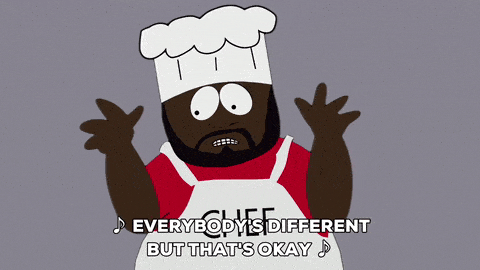
Somebody that exercises with regularity and goes on a lot of long runs will require more water than somebody who exercises less regularly.
There’s no exact amount of water that works for each person.
So where did this magical “8 glasses of water a day” number initially come from?
Nobody really knows.

According to Snopes[2]:
Back in 1945 the Food and Nutrition Board of the National Research Council stated that adults should take in about 2.5 liters of water per day (which is roughly the equivalent of eight glasses of water), but it also noted most of that intake level was already satisfied through the consumption of food without the need for the additional drinking of water.
That’s right, you get a SIGNIFICANT amount of water from the food you are consuming. A huge percentage of our body is water, a huge percentage of the planet is water…why wouldn’t a huge percentage of our food be water too?
So, yes. Consuming water is important.
But the 8 glasses a day case doesn’t hold water (ha!), as we get a significant portion of our daily H2O from the food we consume. Things like fruits and vegetables (and even meat) are composed of a tremendous amount of water, all of which count towards our ‘hydration quotient’ for the day.
Do you know what else counts?
EVERY OTHER BEVERAGE WE DRINK!
Things like tea, coffee, dreaded sugary beverages, milk, and juices, and even alcoholic beverages. [3]
How Much Water a Day Do You Really Need? (Follow Your Thirst)
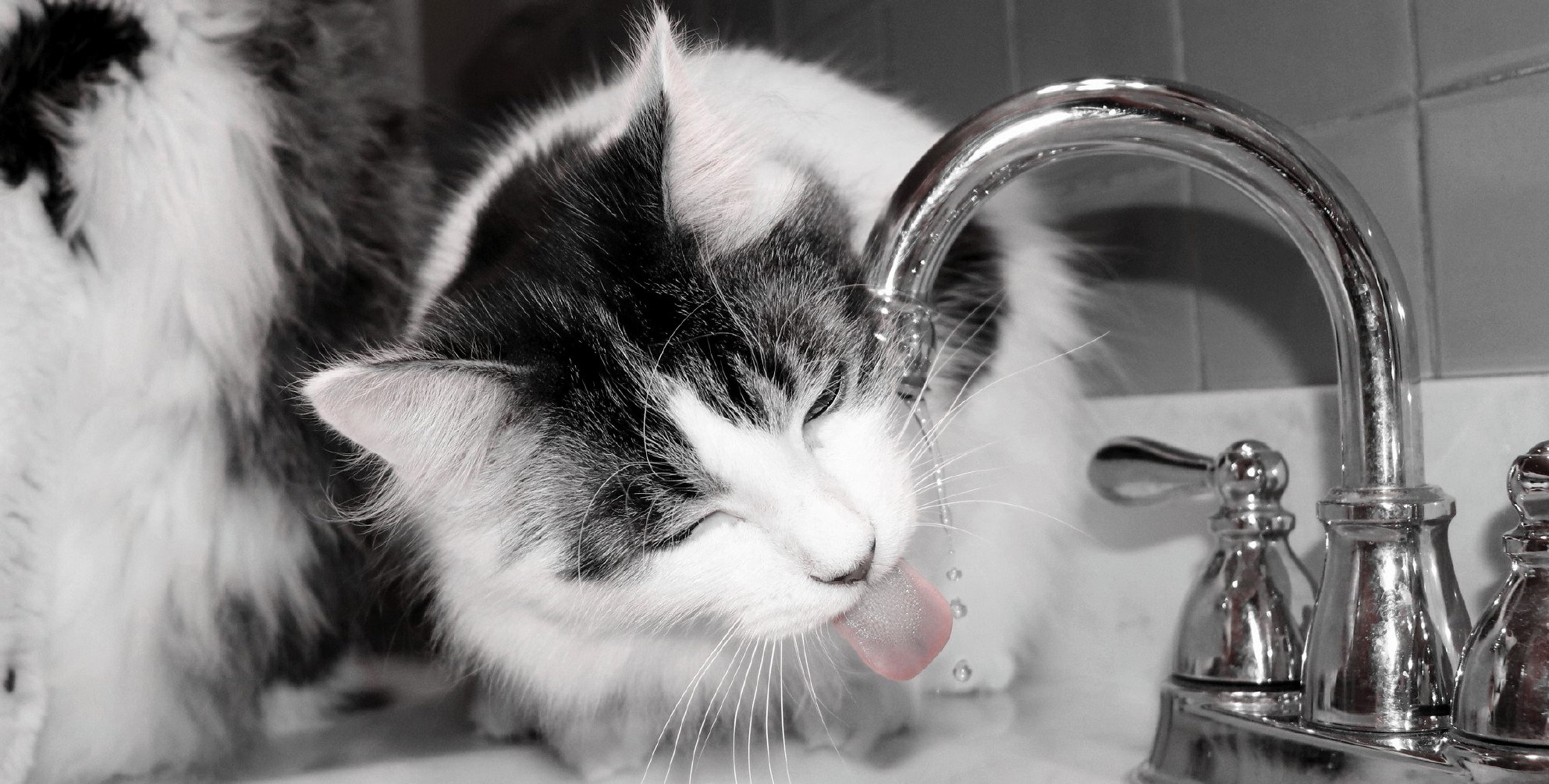
So you now know you don’t need to always drink 8 glasses of water.
It could be less and it could be more.
So how much exactly do you need?
Honestly? Drink when you are thirsty.
That’s it. I’m going on vacation!
Kidding again.
Seriously though, your thirst is a pretty damn good indicator of when you should consume more water. Do you think dogs and cats and elephants worry about hydration levels?
Nope – they simply consume water when their body tells them that they are thirsty.
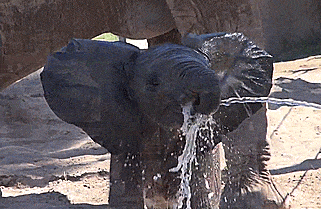
Adorbs.
As nerds, we tend to overthink, overanalyze, and drive ourselves crazy with too much info.
Now, if you happen to be one of those people that needs MORE advice than that, check your urine color.
Weird, I know.
This chart provides a great test for the proper shade of urine:
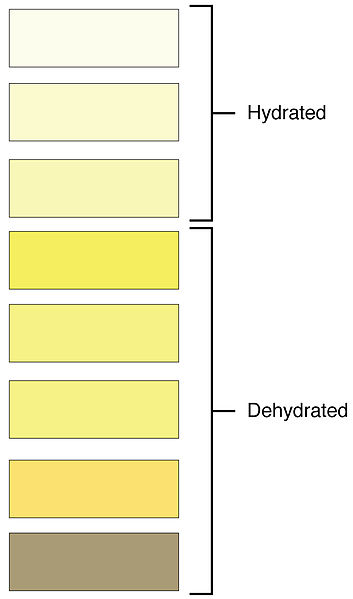
Things to consider:
- You want to aim (not literally) for the first three categories from the top, or “lemonade” color.
- If your pee is starting to resemble Lemon Lime Gatorade (4th category down), you’re dehydrated. From here, the darker and browner the color, the more dehydrated you are.
- If your pee comes out a different color altogether, I would probably seek medical attention immediately. You’re welcome 🙂
What if your pee doesn’t have ANY color to it? You might actually be “overhydrated,” which we talk about in this section.
So what are the telltale signs that something is wrong, that you are dehydrated?
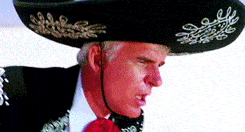
According to the National Institute of Health,[4] your primary signs of dehydration are:
- A feeling of thirst (duh)
- Dry or sticky mouth
- Low or no urine output; urine looks dark yellow
- Sunken eyes
- Lethargy
If you are feeling one or some of these symptoms, you may be dehydrated. We want to take this seriously, because SEVERE dehydration can be terrible for your health, even resulting in a coma.
Not good. So drink water whenever you get thirsty.

There’s a myth running around that says “if you are feeling thirsty, it’s too late and you’re already dehydrated.”
This is also not true.[5] If you are feeling the signs of dehydration, consuming some water can get you right back on track.
If you are regularly dehydrated, let’s discuss a quick hack to make sure you’re consistently hydrated.
How to Drink More Water
The above video comes from our Daily Win series as part of Nerd Fitness Prime.
The series is based on quick actions you can take (5 minutes or less) to help you build healthy habits.
In this video, Coach Lauren walks you through a quick hack if you find yourself constantly dehydrated during the day: drink a glass of water first thing in the morning!
That way you can start off properly hydrated before the chaos of the day takes over:
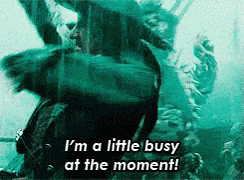
It can also help you wake up to seize the day!
Here are some more tips for drinking plenty of water:
- Fill up a water bottle before bed, leave it in plain sight, and drink it first thing in the morning.
- If you don’t like the taste of water, you can try adding some cucumber slices and mint leaves to your overnight bottle. Your morning water will soak up the flavor!
- If cucumbers or mint ain’t your thing, you could also try some frozen berries or some cut-up lemon.
We’ve heard from many of our coaching clients that water first thing in the AM helps them feel more energized throughout their day.
Next, I want to address a question we get quite often from our readers.
Can You Lose Fat by Drinking Lots of Water? (Weight Loss and Water Intake)
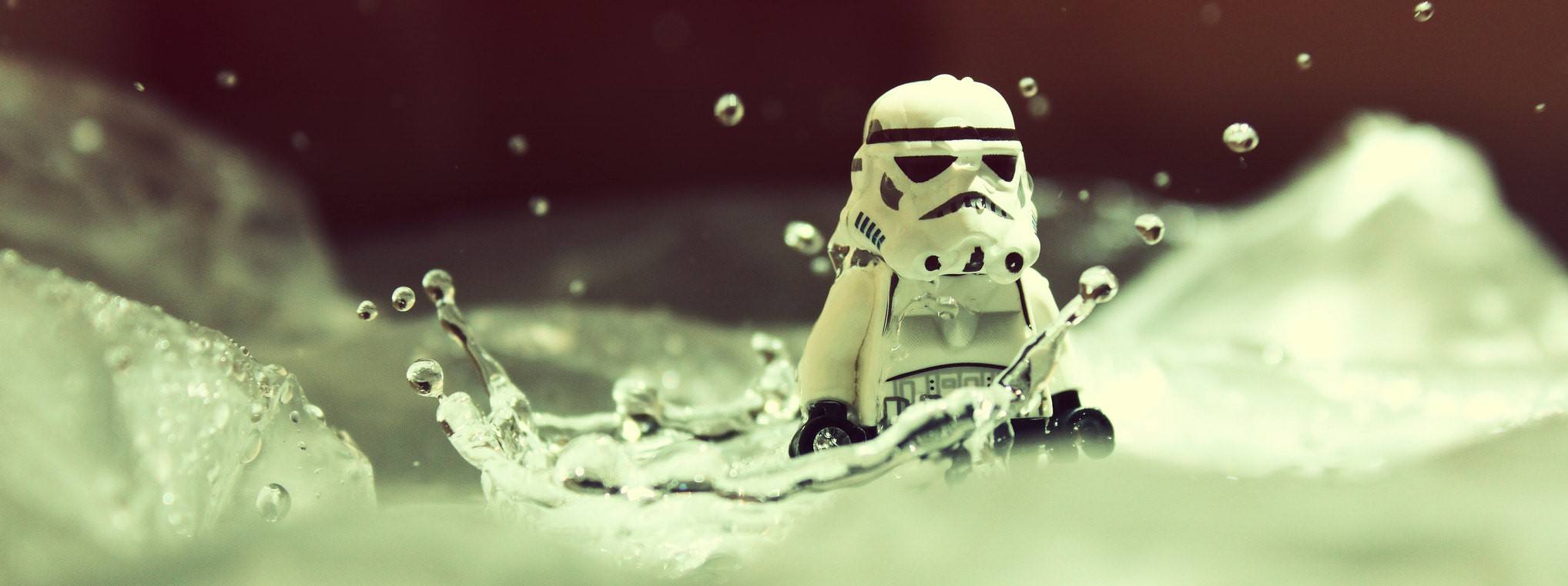
It’s common advice to drink lots of water for weight loss.
Is it legit?
Is there any evidence that drinking plenty of water can help one lose weight?
Eh, there’s a little!
One study conducted had two groups go on the same diet, the only difference being one group had 500 ml of water (about 17 ounces) 30 minutes before breakfast, lunch, and dinner.
The result?[6]
- The Water Group: lost about 4.4% body fat
- The Non-Mandated Water Group: lost about 1.1% body fat
This isn’t a TREMENDOUS difference, but it is interesting!
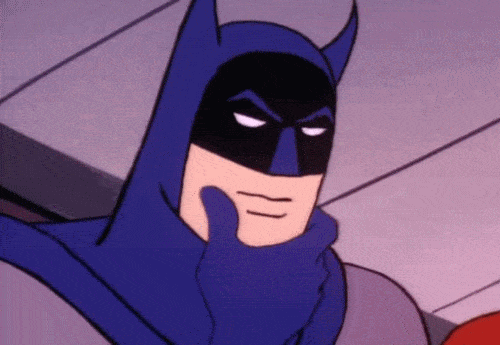
What might be going on?
Here are two reasons why drinking plenty of water might help with weight loss:
- You’re full. Drinking water takes up room in your stomach. There is less room now for food, but also other water like drinks (which may have sugar and hidden calories in it, like fruit juice).
- Water consumption may slightly raise your metabolism. I’m not talking a crazy impact here, but one study found your BMR (Basal Metabolic Rate or how many calories you burn at rest) is raised by 24% for 60 minutes after drinking 500 ml (17 oz).[7]
Let’s provide some context here.
As we address in our guide “Why Can’t I Lose Weight?”, our bodies obey the Laws of Conservation of Energy and Thermodynamics:
To lose weight, we need to burn more calories than we consume regularly.
The two factors above might lower your “calories in” and raise your “calories out” respectively (a concept we discuss in our Guide to The CICO Diet). This may help someone get in shape.
However, I wouldn’t bet the farm (note to self: buy a farm) on solely drinking water for weight loss. When we highlighted the study above on water consumption and weight loss, it’s important to remember that the two groups were both on a calorically restricted diet. It’s not like strategically drinking water alone made people lose weight.
If you are on a weight loss journey, and wondering what might help, I have two resources for you to check out:
- How to Lose Weight Without Dieting (The 5 Rules of Weight Loss): you’ve probably been on a diet before. You might even be on a diet right now. We discuss why they generally don’t work (temporary changes create temporary results) and provide a less conventional but more permanent solution (tiny changes for the win).
- Our 1-on-1 Online Coaching Program: many of our clients spent years yo-yoing their weight, going from one diet to another. It’s only when working with one of our coaches that they were able to achieve sustainable weight loss.
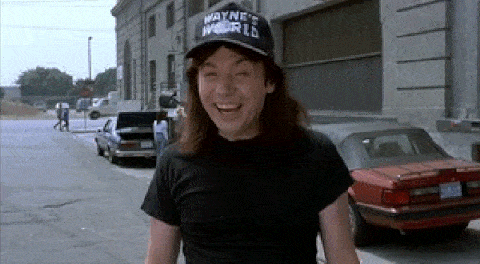
I now hear you saying:
“Okay Steve, I got it. I don’t want to be dehydrated, and drinking water before meals may make me feel full. Why don’t I just start pounding water all day long?”
Great question, my dear friend.
Can I Be Overhydrated? (Too Much of a Good Thing)

While being properly hydrated is good, it doesn’t mean chugging a gallon of water during your gym session is a good idea either.
If not, then why is this so common to see?
From Outdoors[8]:
A single individual working for the U.S. military decided that water was a tactical weapon.
That if the military could be encouraged to drink more during maneuvers, they’d have less heatstroke and less illness and they’d be more productive and could be better soldiers. It was purely his idea. It had no scientific basis at all.
Two years later he published a paper supposedly saying that if the US soldiers drank 1.9 liters per hour [64 ounces] when they were exercising in the heat they would perform much better. There was utterly no concrete evidence that that was true.
The problem was, his advice was embraced by the U.S. Military. They changed their drinking guidelines to say that you should now drink 1.9 liters per hour. The same people who drew up those guidelines were then invited by the American College of Sports Medicine to get involved with drawing up guidelines for runners.
In 1996, that culminated with the new American guidelines,[9] which said that you must drink as much as tolerable during exercise, up to 40 ounces per hour.
That became the mantra—that you had to drink before you became thirsty, and as much as possible during exercise. It was after that the problems of hyponatremia really become problematic around the world.
Combine this with the sports beverage industry (which I’ll skewer in a minute) and the bottled water industry (one of the best scams going, which I’ll get to as well), and you have a marketing engine that won’t slow down:
“Drink before you’re thirsty or it’s too late.”
“Running a marathon? It’s better to over hydrate then not drink enough!”
“Better safe than sorry!”
Actually, you CAN overhydrate, and it can be dangerous – it’s called hyponatremia, it’s an electrolyte imbalance from too much water consumed, and it’s bad news bears.[10]
Want to know the people who suffer from hyponatremia the most?
Marathon and ultra-runners.
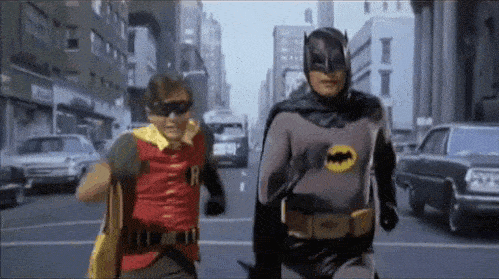
Dr. Timothy Noakes, the author of Waterlogged, explains that the overconsumption of water can lead to our body developing a severe imbalance of sodium in our system, which can lead to a litany of side effects, even death.[11]
What Noaks discovered people who have dealt with cases of exercise-induced hyponatremia:
“What I’ve found is that all of these people were probably drinking 1.2 liters per hour [40 ounces]. They continue to drink like that for four or five hours. Now, normally, if you’re drinking at that rate, you simply pass it out as urine.
A person who is overdrinking will start passing urine so frequently that they’ll realize, this is stupid. I’m going to stop drinking.
But what happens in hyponatremia is that, for some reason, the brain interprets that the person is dehydrated and secretes the antidiuretic hormone. As a consequence, that prevents all urine production.
Although they are sweating, they may be sweating at a rate of 20 ounces per hour, but they are drinking at a rate of 40 ounces per hour. Every hour they are accumulating 20 ounces. You can do that for a couple of hours, but once you’ve accumulated about 60 to 80 ounces of water in your body, all of your tissues become bloated, and the organ that becomes most affected is the brain.
The brain swells, and because it is in a rigid skull, it cannot swell very much. The more it swells, the more pressure, and that eventually squeezes the arteries supplying blood to the brain. Ultimately, there is less oxygen getting to the brain, and certain parts become damaged.“
Not good.
One 2002 study found that 13% of Boston Marathon runners experienced hyponatremia. While many experience hyponatremia without being in immediate danger, it certainly isn’t healthy.[12]
So, how do you combat this?
Drink when you are thirsty!

LISTEN TO YOUR BODY!
Time to answer your next question: “If drinking too much water causes an issue with sodium imbalances, what about sports drinks? They have electrolytes and sodium in them!”
Are Sports Drinks More Hydrating Than Water? (Water, Sugar, Salt, and You)
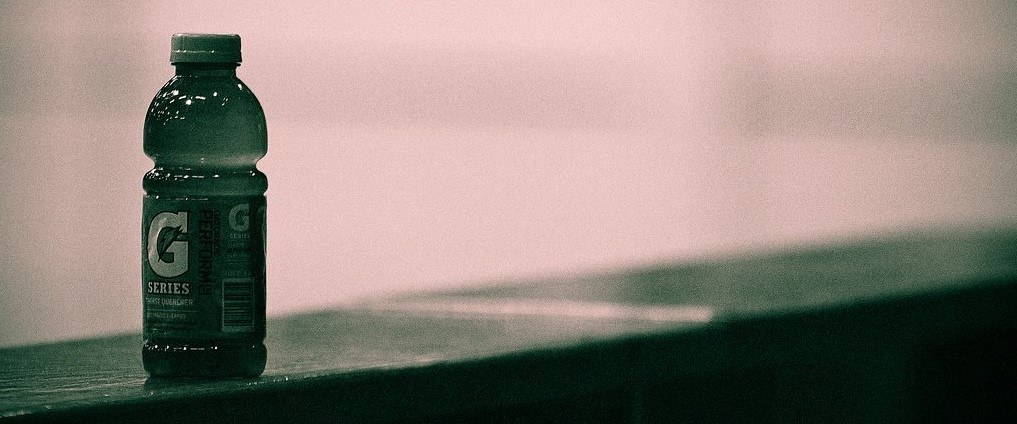
Michael Jordan is famously seen drinking Gatorade during his flu game in 96, which tells us that without Gatorade he wouldn’t have been able to play:
Little do they tell you that Michael also had another secret weapon at his disposal that helped him play up to snuff in that game: apple sauce!
So why is that famous commercial all about Gatorade and not about apple sauce?
One word, and it rhymes with “honey.”

There’s wayyyy more money in the sports beverage industry, and they can sell on the term “replenish electrolytes” which is actually way simpler to do than they make it out to be.
We’re promised that without the careful combination of electrolytes and ingredients in Gatorade, we’re going to get dehydrated when exercising and suffer.
Here’s what happens: When you sweat, you lose fluids and electrolytes, especially sodium and chloride (which is why your sweat tastes salty…stop tasting your sweat). Now, when you’re lacking fluids and electrolytes, your muscles and performance can suffer.
So that’s where Gatorade ALLEGEDLY will solve all of your problems.
Here’s the truth: unless you are exercising for hours and hours and hours, your electrolyte imbalance will not cause a drop in performance. If you are exercising for an hour or less, some sips of water to quench your thirst is more than enough.
If you ARE exercising for hours upon hours, then additional electrolyte products may help.
In these instances, Gatorade could help potentially, but there’s nothing in Gatorade that’s magic. It’s sugar, water, sodium, potassium, and then some artificial and natural flavoring to make it taste and look the way it does.
Want the benefits of Gatorade while on your marathon run without having to buy Gatorade? Make your own!
As Al Kavado talks about here, try mixing water, honey, salt, and/or lemon juice. Try different combos (mixing in some OJ or using coconut water!)
And just like that, you have your sodium, some sugars, and rehydration. No fancy marketing required.
THE WORST THING YOU CAN DO?
Do some boring cardio for 20 minutes (which burns a minimal number of calories), and then chug a 32 oz Gatorade (200 calories and 50+ grams of sugar!) and think you’re better off.
Negatory!
Water works just fine for 98% of the activities you will ever do.
Does Coffee Dehydrate You? (Caffeine as a Diuretic)

Time to put the myth-busting cap back on: You’ve probably been told that drinking caffeinated beverages will dehydrate you.
That by consuming caffeinated beverages, you’re actually expelling more water than you are consuming.
This is another one of those bits of conventional wisdom that gets blown out of proportion.
Yes, caffeine is a mild diuretic. However, our bodies are pretty darn smart, and because all drinks are composed almost entirely of water, it more than makes up for the effects.
As pointed out here in this study:[13]
Ingestion of caffeine in large doses (at least 250-300 mg, equivalent to the amount found in 2-3 cups of coffee or 5-8 cups of tea) results in a short-term stimulation of urine output in individuals who have been deprived of caffeine for a period of days or weeks.
A profound tolerance to the diuretic and other effects of caffeine develops, however, and the actions are much diminished in individuals who regularly consume tea or coffee.
Doses of caffeine equivalent to the amount normally found in standard servings of tea, coffee and carbonated soft drinks appear to have no diuretic action.
So coffee can actually help you stay hydrated.
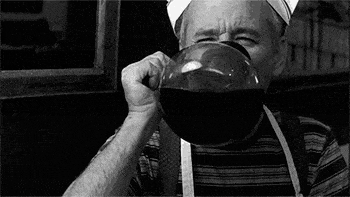
What about alcohol?
Same thing.
Alcohol has diuretic properties, but only causes dehydration when consumed at beyond normal levels. (Here’s our Guide to Drinking, which covers our thoughts on being a fit nerd that can still enjoy an occasional cocktail.)
What ALLLLL OF THIS MEANS:
- Drink when you are thirsty.
- All liquids you consume count towards hydration, and only in cases of overconsumption can they negatively affect your hydration.
A Note on Bottled Water (Invest in a Water Filter)
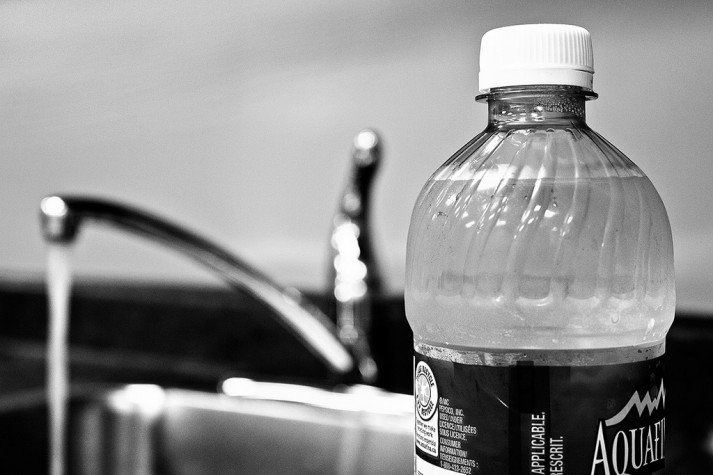
In 2019, total U.S. bottled water consumption increased to 14.4 billion gallons, up from 9.1 billion gallons in 2011.[14]
- Every person in America drank an average of 43.7 gallons of bottled water last year.
- Bottled water sales increased by 3.6 percent in 2019, and now total $34.6 billion.
Yikes,
It is very likely that your local tap water is fine!
Check your local government for more information, but if you live in the United States, chances are your tap water is equal or better to the bottled stuff! Heck Coca-Cola knows this, as their Dasani Brand is ultimately filtered tap water.[15]
Want that bottle of Fiji water because it’s clean and pure and provides you with magical abilities like a waterbender?
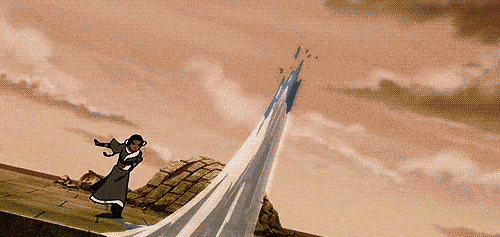
There is less arsenic in Cleveland Tap water than Fiji water![16] Much less expensive too 🙂
If you don’t like the taste of, or are concerned about your local tap water, try a Brita filter or something equivalent. Stop going through hundreds of plastic bottles of water every year, and drink the water you already have available to you.
Yes, if the choice is between no beverage, a Coke, or a bottle of water, go with the bottled water!
Just don’t go out of your way to buy water from the polar ice caps, Hoth glaciers, or the Swiss Alps because you think it’s going to be healthier for you, provide you with more of a benefit than regular water.
That’s all hype, sucka!
So go invest in a nice refillable water bottle. You can even snag a Nerd Fitness one if you want!
Staying Properly Hydrated (Next Steps)
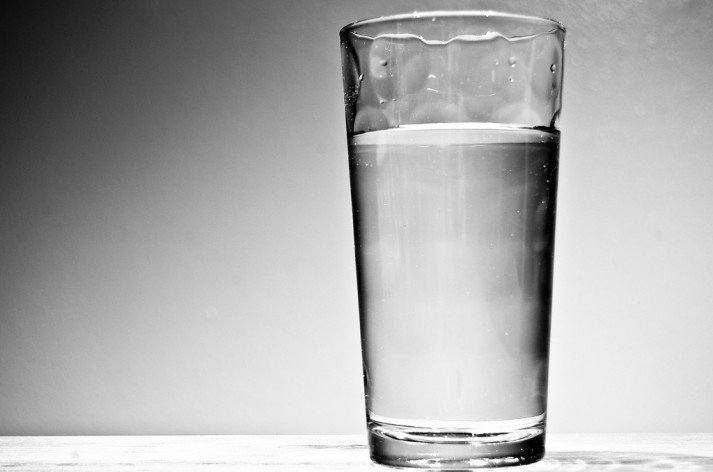
There you have it, the long answer on how much water you should drink.
Water keeps your body functioning properly. Consume it when you feel the need and your thirst will be quenched, your body will stay regulated, and you will live to see tomorrow.
On top of that, consuming water before a meal can help you feel fuller and thus prevent you from overeating.
If this works for you, keep doing what you’re doing!
Water should definitely be consumed when you are thirsty!
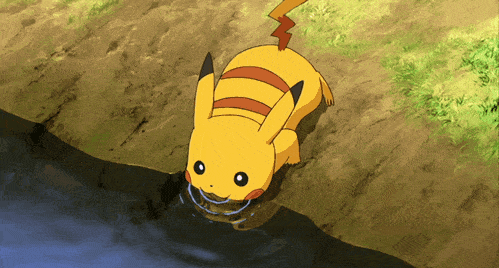
But the importance of water has been overblown, and you don’t need to spend hundreds of dollars each year on fancy bottled water from glaciers.
Here’s how often you should drink H2O::
- Chill out about water, don’t overthink it.
- Drink when you feel thirsty.
- If your pee is a darker color than normal, drink more water.
- Don’t stress about drinking water neurotically throughout the day.
- Don’t bother with sports drinks unless your exercise is intense, over several hours, or in very hot conditions.
I think that about does it for today’s guide.
If you’d like to join our community, I have three ways for you to continue your journey with Nerd Fitness:
#1) Our 1-on-1 Online Coaching Program: a coaching program for busy people to help them make better food choices, stay accountable, and get healthier, permanently.
You can schedule a free call with our team so we can get to know you and see if our coaching program is right for you. Just click on the image below for more details:
#2) If you want an exact blueprint leveling up your nutrition, check out Nerd Fitness Journey! Our fun habit-building app helps you exercise more frequently, eat healthier, and level up your life (literally).
If you follow our Nutrition missions, you’ll learn to drink more water while earning XP! Sah-weeeet.
Try your free trial right here:
#3) Join The Rebellion! We have a free email newsletter that we send out twice per week, full of tips and tricks to help you get healthy, get strong, and have fun doing so.
I’ll also send you tons of free guides that you can use to start leveling up your life too:
- Follow our 10-level nutrition system at your own pace
- What you need to know about weight loss and healthy eating
- 3 Simple rules we follow every day to stay on target
Have any more questions for me? What else do you need to know about water?
Let’s hear it.
-Steve
PS: We walk about how water fits into a proper diet in our Guide to Healthy Eating. Check it out if you’re just embarking on leveling up your nutrition game.
###
photo source: Han Shot First: Aquaman, jDevaun: Gatorade, RLhyde: Glass,, philografy: bottled water, 27147: coffee cup,, Adventures With My Dogs: Waterfall, Urine Color, 1upLego: Lego Dawn of Justice Aquaman, Kristina Alexanderson: Maybe the droids we’re looking for are at the bottom of the pool, Jeanne Menjoulet: building in a glass of water, Lisa Zins: The Facuet, az: d-136 I’m not just going too far, I’ve arrived,
The post How Much Water Do I Really Need? (A Guide for Proper Hydration) first appeared on Nerd Fitness.
from Nerd Fitness https://ift.tt/WMhQLAb


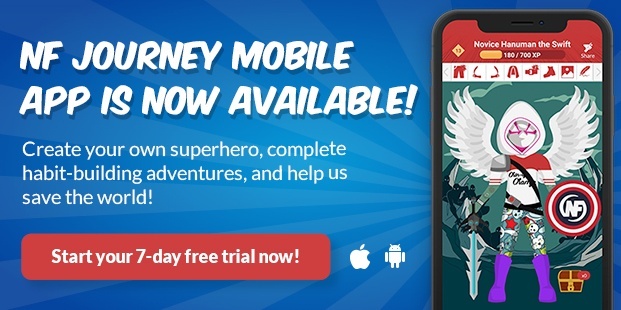
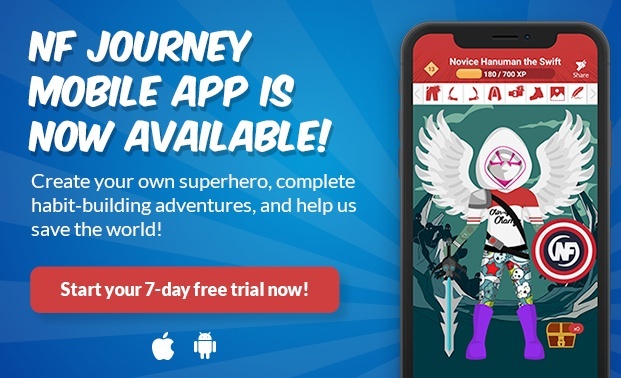
0 comments:
Post a Comment